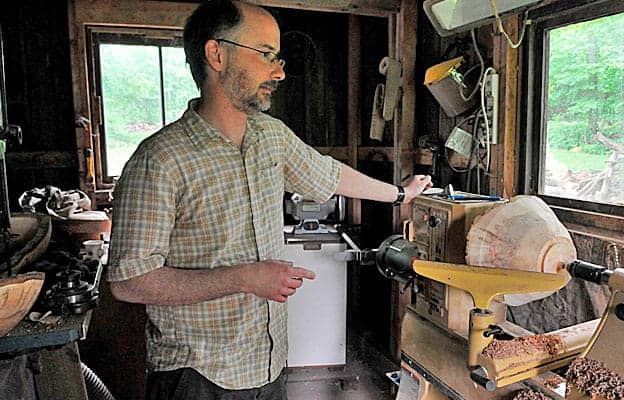In response to what he views as “a longstanding problem with our outdated labour laws,” Kitchener-Conestoga MPP Michael Harris is introducing a private member’s bill at Queen’s Park, with the intention to “preserve open competition for local infrastructure projects.”
The Fair and Open Tending Act, which Harris introduced at a press conference in Kitchener on May 17, would insert a definition into the Labour Relations Act that exempts public sector employers from rules applying to for-profit contractors.
“Over the years, certain unions have successfully exploited a legal loophole in Ontario that allows them to certify municipalities and school boards as if they were construction companies,” said Harris. “Once this happens, these public sector employers, like the region, get trapped in these labour monopolies, which require them by law to contract out all publicly funded infrastructure projects to companies organized by a specific union.”
This has lately been a controversial issue in the Region of Waterloo, when the loophole was used in December by two construction workers who built a shed at the Waterloo Region library in Baden. In Ontario, if the workers form a majority on the worksite, they can apply to the Labour Relations Board to be certified by a union. The two workers, already affiliated with other unions, applied to be certified by the United Brotherhood of Carpenters and Joiners of America. The loophole in the Labour Relations Act would require public sector contractors to follow the same laws as private sector contractors.
“What comes with that are restrictive clauses the region will have to follow … that would basically force the region, when they tender public infrastructure projects, to only use contractors that are affiliated with the carpenters’ union,” said Harris, adding that if passed, his bill would open competitive bidding among unions for public infrastructure projects in Ontario.
“Hamilton, Toronto, Sault St. Marie, and the Greater Essex County School Board are all locked into this public sector labour monopoly,” said Harris. “I believe it’s not fair for local taxpayers, but more importantly, it’s not fair for companies that are qualified to perform this work, to say, ‘You’re not allowed simply because you’re not affiliated with a particular union.’”
While union issues are a political hot potato, Harris emphasized his view that the bill is non-partisan, and noted that at his recent press conference, he was joined by members of the Christian Labourers Association of Canada.
“It’s not a union/non-union issue. It’s about, if you’re a qualified, unionized, open-shop company, you should have the opportunity to fairly compete for contracts,” said Harris.
But not everyone is convinced. Sean O’Dwyer, senior business manager of the United Brotherhood of Carpenters, called the bill “political posturing.”
“He talks about a legal loophole in outdated labour laws. That’s a pile of garbage,” said O’Dwyer. “What happened with the carpenters is completely within the law, and the labour laws are not outdated. They are living documents, constantly based on precedent, constantly being updated.”
O’Dwyer also criticized Harris’ assertion that the present restrictions can drive up costs on infrastructure by 40 per cent. “They’re pulling that out of the air. I can tell you, I’ve never seen a single project in my life that has had 40 per cent of carpentry work in it, period. It’s garbage.”









